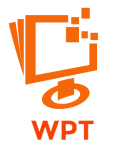
Many people choose HostGator as their first web host thanks to high discounts and a large number of HostGator coupons. Unfortunately, HostGator WordPress is slow by default. Here’s why.
Table of Contents
1. HostGator WordPress is Slow Thanks to High-Density Servers
The first reason for the low performance of WordPress on HostGator is the number of accounts on a typical HostGator shared server. Because HostGator is so cheap, they need to cram a lot of accounts onto a single server. Since everyone shares the same CPU and RAM, there’s less to go around for everyone else, which causes performance issues.
This performance lag is most noticeable on the HostGator Hatchling plan. Since the pricing is cheap and starts at just $2.57/m, the only way for them to make money is to increase the number of accounts per shared server.
2. Standard LAMP HostGator Architecture for WordPress
The second reason HostGator WordPress is slow is that they don’t optimize their architecture. The standard “LAMP” setup stands for “Linux, Apache, MySQL, and PHP”. It’s excellent, and all the software is free from licensing restrictions. Maintenance is easy thanks to the excellent documentation and community support for fixing problems.
Unfortunately, the LAMP stack doesn’t offer the best performance for WordPress. Apache doesn’t handle simultaneous requests as efficiently as, say, NGINX, and it doesn’t have in-built support for server-side caching. For WordPress hosting, there are better alternatives like LiteSpeed and NGINX. But NGINX is harder to maintain, and LiteSpeed requires a paid license. Both of these options increase the cost for HostGator, so it sticks with the slow LAMP stack for WordPress.
3. Strict HostGator Account Limits for Resources
The final reason WordPress is slow on HostGator is the strict account limits. Here’s a list of the HostGator resource limitations for shared hosting:
| Resource | HostGator Limit |
|---|---|
| CPU | Not over 25% for 90 seconds |
| Processes | 25 simultaneous processes |
| Inodes | 200,000 |
| Not more than 500 e-mails per hour |
These limits apply to each cPanel account and not to each website. So if you host several WordPress websites with HostGator, each site will have to share these restrictions. So the more websites you host, the slower HostGator WordPress gets.
These account restrictions are most noticeable when taking backups through a plugin. For example, using UpdraftPlus with shared hosting is a terrible idea.
Fixing a Slow HostGator WordPress Site
While there is nothing you can do to overcome HostGator’s inherent WordPress limitations, plenty of actions will mitigate its effects. Here’s what you can do.
Implement Local Caching
Ordinary shared hosting on HostGator has no built-in caching for WordPress, so you should download a WordPress plugin like W3 Total Cache or WP Super Cache that saves dynamic pages as local HTML files and serves them to repeat visitors. This technique improves the performance of WordPress because the HostGator server doesn’t have to generate each page from scratch.
Using local caching, you can extend the performance of HostGator WordPress to handle many more visitors than usual.
Utilize Full CDN Caching with Cloudflare or QUIC.cloud
You probably already use a CDN like Cloudflare for static images and files. But did you know that you can use Cloudflare even for dynamic caching? Unlike local caching, as explained above, Cloudflare can store your WordPress pages in multiple EDGE locations around the globe, meaning that repeated requests won’t even hit your HostGator server, making it blazing fast.
For a slow HostGator WordPress site, CDN hosting is a reality. My favorite plugin is Super Page Cache for Cloudflare. QUIC.cloud has even better integration with WordPress, though it comes with a credit system where you get a certain number of free monthly credits. With CDN hosting and local caching, you can get more performance out of a slow HostGator WordPress installation than you have any right to!
Use Autoptimize for Inline CSS and Efficient Loading
You can improve page loading speed by inlining above-the-fold CSS, lazy loading images, and deferring JavaScript. The best WordPress plugin for this task is Autoptimize, and you can combine it with the Async JavaScript plugin for more fine-tuned JavaScript optimization.
Alternatives to Slow HostGator WordPress Servers
You need to find another web host if you want to go beyond band-aid solutions. Here’s a list of the best HostGator alternatives. For maximum performance, I suggest you choose from the best LiteSpeed hosting services list. Another alternative is NGINX hosting, which has special optimizations for WordPress, unlike HostGator.
Another alternative is to upgrade to a higher tier. For example, you could test HostGator’s managed WordPress package with in-built caching, a cloud-based architecture, and lower-density servers.
A solution that will work for you lies between fixing an existing slow HostGator WordPress installation and finding a good alternative. Good luck!

Speak Your Mind